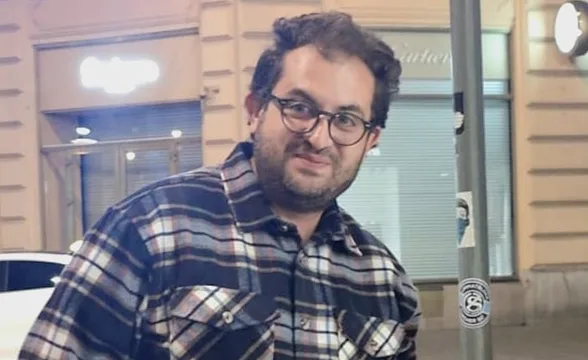June 20, 2025 – The Indictment Chamber of the Tunis Court of Appeal, which specializes in terrorism cases, issued a decision to refer Elyes Chaouachi, the son of political prisoner Ghazi Chaouachi, to the competent criminal chamber. The decision was made in connection with videos and posts he posted on his Facebook page, which included critical positions and public statements against judges involved in the “conspiracy against state security” case. This is one of the most prominent political cases, which has involved several opposition figures, including his father, the former Secretary-General of the Democratic Current Party, who was recently sentenced to 18 years in prison.
Case Background:
Elyes Chaouachi currently resides outside Tunisia. He has not been arrested, but Tunisian authorities are pursuing him for his digital activism. He had difficulty obtaining his passport in late 2023 after prolonged delays from the Tunisian consulate in Lyon, despite meeting all the requirements.
In April 2025, the Public Prosecutor’s Office at the Judicial Counter-Terrorism Pole opened an investigation against him following video clips in which he spoke about the judges of the court that heard his father’s case. The National Unit for the Investigation of Terrorism Crimes was tasked with monitoring these clips, which constituted a dangerous indication of the misuse of the anti-terrorism law against peaceful expression.
In June 2025, the Indictment Chamber decided to refer him to the competent criminal court based on these posts, including live videos on Facebook and TikTok. He was officially prosecuted by the Anti-Terrorism Chamber.
Systematic Violation of Freedom of Expression and Politicization of the Anti-Terrorism Law:
The case of Elyes Chaouachi exemplifies how legal texts in Tunisia are exploited to undermine freedom of expression and intimidate critics of the government. The Tunisian Constitution (2014 and 2022) guarantees freedom of opinion and expression and prohibits prior censorship (Article 37 of the 2022 Constitution). Article 19 of the Universal Declaration of Human Rights and the International Covenant on Civil and Political Rights—ratified by Tunisia—also affirms the right of individuals to freedom of expression and impart information.
The trial of Elyes Chaouachi based on his publications is a clear violation of these guarantees and indicates a serious deviation in the use of judicial mechanisms.
Instead of using the anti-terrorism law to address actual threats, it is now being used to criminalize peaceful speech online. This is a dangerous precedent that demonstrates the politicization of counterterrorism tools to serve political agendas.
In August 2024, the UN Working Group on Arbitrary Detention deemed the detention of dissidents in the “conspiracy” case, including Elyes’s father, to be arbitrary, calling for their release and compensation.
Targeting Family Members of Opposition Members:
Elyes Chaouachi explained that he has been subjected to repeated administrative harassment because he is the son of an opposition figure, starting with being denied his passport and then being prosecuted for his blog posts. These practices constitute a form of family harassment aimed at silencing voices even within the families of political detainees.
The Freedom for Tunisia Observatory asserts that criminalizing family members for defending their detained relatives or expressing their opinions constitutes a flagrant violation of international law and humanitarian standards.
The Freedom for Tunisia Observatory believes that these prosecutions come in the context of an ongoing escalation against anyone who criticizes the judiciary or the executive authority, amid the systematic use of Decree 54 and other exceptional laws to criminalize free expression, such as the anti-terrorism law, particularly when criticizing judges or expressing solidarity with political detainees.
Elyes Chaouachi was among the voices who early on warned of the seriousness of these trials, citing the lack of guarantees of justice in the “conspiracy” cases involving his father and prominent lawyers and activists.
The Freedom for Tunisia Observatory calls for:
- An immediate halt to the ongoing judicial proceedings against Elyes Chaouachi, as they are political in nature and based on the legitimate exercise of freedom of expression.
- Respecting freedom of opinion and expression, guaranteed by the constitution and internationally, and rescinding the use of the anti-terrorism law to criminalize peaceful expression.
- An end to the targeting of the families of political opponents and all forms of administrative or judicial harassment against them.
- Adhering to the recommendations of the UN Working Group on Arbitrary Detention, including the release of all detainees in the “conspiracy” case and guaranteeing their right to compensation.
- Opening a transparent national debate on reviewing Decree 54 and the anti-terrorism law, and ensuring that these provisions are not used as tools of political repression.





